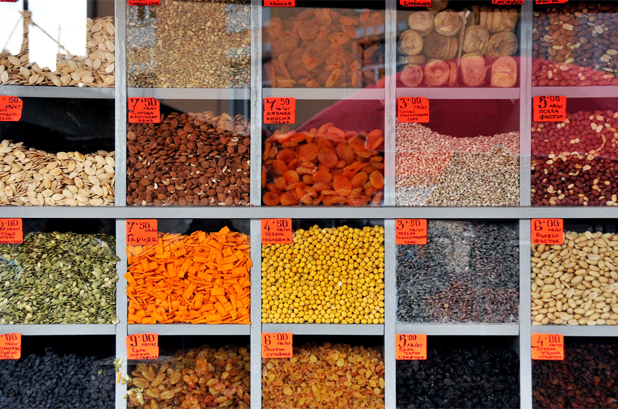Facing the Food Crises

Gilles Mettetal, EBRD Director for Agribusiness, speaks about the newly launched Private Sector For Food Security Initiative which will be implemented under the EBRD-United Nations Food and Agricultural Organization framework for food security "We simply don’t have enough food for the future of our world,” says Gilles Mettetal, EBRD Director for Agribusiness.
His warning comes after the dramatic price increases during the food crisis in 2007-08 and a recent second hike, which signal a future of severe food price fluctuations. Demand for food and agricultural products is ever increasing. Global food stocks are at alarmingly low levels and critical natural resources for food production, such as water, are in jeopardy, not least due to climate change which has increased the unpredictability of food supply. Despite these enormous challenges, the solutions seem simple. According to a new initiative developed jointly by EBRD economists and the Agribusiness team called the Private Sector for Food Security Initiative, existing programmes to tackle the food crisis have put too much emphasis on the demand side and have not paid enough attention to structural support problems. In their view, stimulating more private sector involvement would greatly improve productivity and having better-matching exporting and importing countries would help decrease food losses.
The Private Sector for Food Security Initiative also aims to bring together the Bank’s existing countries of operations and its potential new region in the southern and eastern Mediterranean (SEMED) by aiming to match the huge potential for exports in the former area with the massive import needs of the latter, which is the biggest importer of cereals in the world. “Some of our countries of operations like Russia, Ukraine and Kazakhstan are becoming increasingly important global players with the potential to contribute to rising global food demand,” says Mr Mettetal. “If these countries were to fulfil their potential they could supply almost half of the world’s grain export needs!”
Clearly, no single institution has the capacity to achieve this on its own. The initiative therefore aims to improve international coordination. In particular, it strives to better utilise the collective strength of the Multilateral Development Banks’ (MDB) Working Group on Food and Water Security, through joint projects for strengthening social safety nets, addressing food market volatility, increasing investments in agriculture and improving access to water.
The Bank will also utilise the new programme to scale up collaboration in the EBRD-United Nations Food and Agricultural Organization (FAO) framework for food security and specifically the expansion of the EastAgri network of international financial institutions (IFIs) and banks investing in agribusiness to the SEMED region.
Gilles Mettetal tells us more about the initiative in his interview
For more information, please see:http://www.ebrd.com/pages/news/features/food_crisis_initiative.shtml
